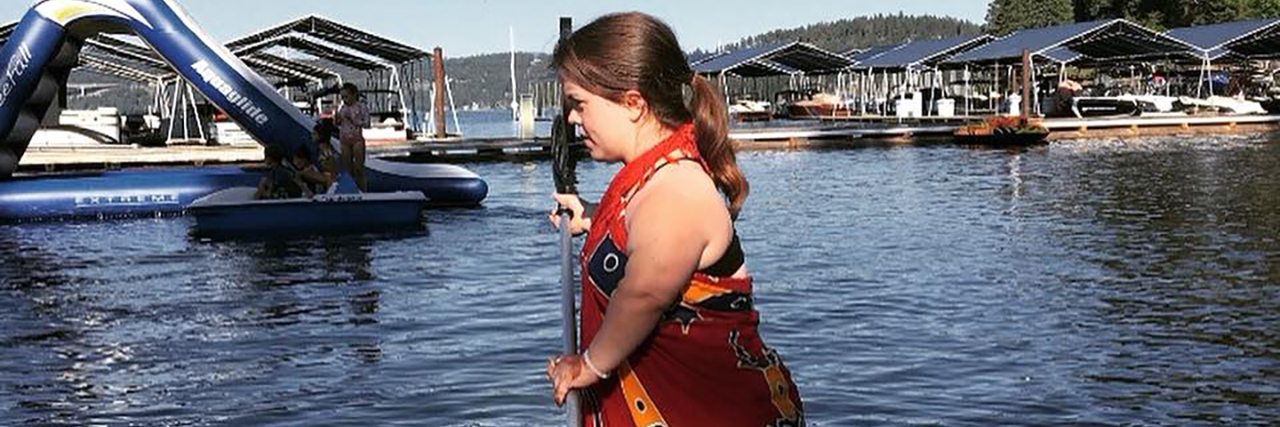I am a 22-year-old with achondroplasia dwarfism. When I walk into public spaces usually occupied by families like supermarkets or shopping malls, I am often confronted by the reactions of children. I have noticed patterns among kids and parents that can make an interaction either positive or negative for all parties involved. If you are a parent now, or may be a parent in the future, I hope this article is informative. I strongly believe that a child who is taught to be accepting of all kinds of people will grow up to be an adult who is accepting of all kinds of people too.
When a young child sees someone with dwarfism, usually one of two things will happen. They will either get the attention of their guardian and point out the person, or they will be a bit more vocal and announce their surprise to see a Little Person to everyone around them. Sometimes children will not say anything at all, but those in the preschool to elementary age range often do.
I don’t think this need in children to point out difference is bad. Kids have a magical curiosity wired into them which opens up their mind to so much. If they see something different, of course they will want to know why and how it is different.
I have seen parents and guardians react to their children’s responses in a number of ways. Some will take their child away as quickly as possible with a look of embarrassment on their faces. I have also seen parents either ignore their child or tell them to “quiet down.” Unfortunately, some parents discipline their child when confronted with this situation. I have witnessed both verbal and physical discipline in public. It upsets me to see a young child being scolded for their curiosity. Now every time that they see another Little Person, there will be a negative connotation because of the time they were punished.
Calling out someone’s physical difference may not be socially acceptable all the time, but it is a great opportunity to learn. Some parents encourage curiosity in their children and answer their questions. The children who do not get their curiosity answered are left frustrated because there is still something they do not understand. Parents who promote this curious nature in their children will often take the time to have a conversation with their child about dwarfism or physical difference. I have seen the start of so many wonderful conversations between parent and child because they saw me and the child had questions. Something else that does not happen as often, but I encourage, is when the parent tells the child to ask me questions. It is incredible how simple their questions are and how quickly they go from curious to comfortable with dwarfism.
These kids usually ask questions like, “How old are you?” “Why are you so short?” “Do you drive a car?” “Do you have a job?” The questions are almost always simple, easy to answer, and they can change the way the child responds to people with dwarfism for the rest of their lives. Once the kids understand the only real difference is height, and other than that I am an ordinary person, their curiosity has been satisfied. These conversations are easiest to have with children because their minds are not yet filled with preconceived notions. However, I have also had conversations with adults who are a bit more sophisticated but are still generally curious about my difference. I think these conversations are wonderful because they help to close the social gap between non-disabled and disabled people.
Letting children ask questions is so important. They can often see the truth of a person much easier than adults can. Even though a busy moment in a grocery store may not seem like the most convenient time for a life lesson, the benefit of taking a minute to talk can change everything. The child with a new point of view on physical disabilities will share it the next time they’re in a similar situation and the domino effect will keep going.
Even if you and your child do not spontaneously come across one of these teaching moments, any time is a great time to have a conversation about physical differences. I believe satisfying curiosity about difference today can create a better world tomorrow.

